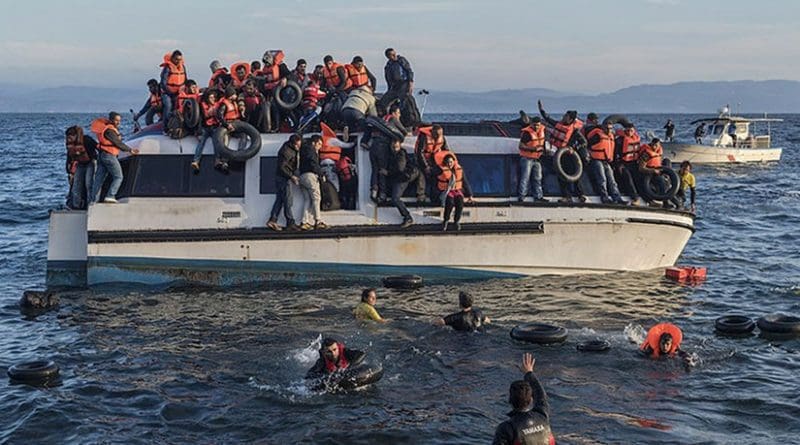European Commission Presents Measures To Manage Migration
The European Commission and the High Representative/Vice-President presented on Wednesday a number of additional measures to strengthen the EU’s work along the Central Mediterranean route, in particular with and around Libya.
According to the European Commission, these actions are focused on fighting human smuggling and trafficking networks, helping to manage migratory flows more effectively, continuing to save lives at sea and improving the living conditions of migrants and refugees in Libya and neighboring countries.
“Too many people are still dying in the Mediterranean. We have implemented actions to address the situation but we need to do more,” European Commission President Jean-Claude Juncke said. “Today we are presenting possible short and medium term actions to address the flows to and from North Africa. First and foremost, stability in Libya and the region as a whole is required. While continuing our support to this process, we can take forward actions to help make a difference, save lives and break the smugglers’ and traffickers’ business model – which will also impact the flows towards Europe.”
Since 2015, the resources and assets for EU operations at sea have tripled, contributing to saving more than 400,000 people in the Mediterranean. However, the increase in migration along the Central Mediterranean route, where over 181,000 migrants and refugees arrived to the EU in 2016, has also led to record levels of loss of life at sea.
To help prevent this human tragedy from continuing in 2017, the Commission and the High Representative/Vice-President are identifying operational, short term actions to be taken in cooperation with Member States in relation to the Central Mediterranean route. Part of a comprehensive strategy, the actions proposed take into account the wider regional context (in particular Libyan’s southern border, as well as Tunisia, Egypt and Algeria) whilst putting a strong focus on Libya, representing the departure point for 90% of those seeking to travel to Europe.
Building on the European Agenda on Migration and the work undertaken under the Migration Partnership Frameworkaimed at strengthening cooperation on migration with partner countries, key objectives include:
- Reducing the number of crossings and saving lives by enhancing ongoing support, including through EUNAVFOR Operation Sophia, to the Libyan Coast Guard and Navy, including through expanding the training activities through an immediate €1 million addition to the Seahorse programme and a grant of €2.2 million under the Regional Development and Protection Programme in North Africa and establishing a Maritime Rescue Coordination Centre;
- Stepping up the fight against smugglers and traffickers by ensuring an operational ‘Seahorse Mediterranean’ Network by Spring 2017 to strengthen the border authorities of North African countries and allow better operational cooperation amongst them;
- Protecting migrants, increasing resettlement and promoting assisted voluntary returns, by supporting UNHCR work with the Libyan authorities to address the situation of persons in need of international protection, supporting IOM in improving the situation of migrants in Libya and expanding its assisted voluntary returns programme from Libya to countries of origin;
- Managing migrant flows through the southern Libyan border by deploying the full range of EU missions and projects to support the Libyan authorities in border management and migrant protection, promoting dialogue between Libya and its neighbours and maintaining the momentum of results with Niger under the Partnership Framework;
- Increasing dialogue and operational cooperation with partners in North Africa on migration management;
- Stepping up funding from the EU Trust Fund for Africa by mobilising €200 million for projects in 2017 to support actions such as training and equipping the Libyan Coast Guard, improving the conditions for migrants and stepping up assisted voluntary returns.
These efforts require concerted action by the EU institutions and Member States, relevant partners in North Africa, as well as cooperation with international organisations active in the region, such as the UNHCR and the IOM. The Commission and High Representative/Vice-President recommend that the Heads of State or Government meeting in Malta on 3 February endorse the operational actions outlined above.

